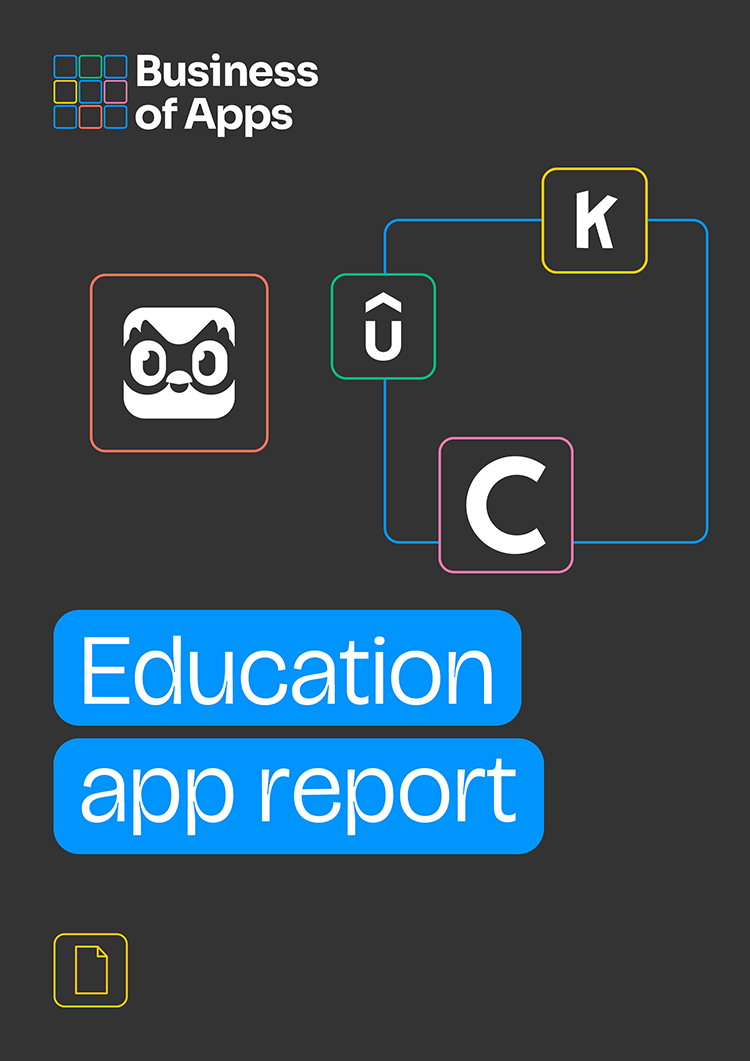Babbel is a language learning platform which has slowly but steadily grown in popularity, to the point now it is one of the top-grossing apps of its kind in the world. It was originally launched as a web-app in Mitte, Berlin in 2008.
Babbel has garnered a studious reputation for its language learning system, called The Babbel Method, which uses real conversations by native speakers and retention techniques to quickly teach subscribers the language.
This method is a slight dig at some of Babbel’s competitors, which use text-to-speech artificial intelligence instead of importing actual voices.
Ultimate App Growth Guide 2025
Boost your app’s success with the Ultimate App Growth Guide! 🚀 Expert insights, proven strategies & must-know tips. Download now!
Master app growthBabbel also differs from other language learning apps in its approach to paid content. While Duolingo offers its app for free with adverts and Memrise and Busuu both offer some free tiered services, Babbel is paid-for only.
That focus on paid-only has lowered the amount of users Babbel has obtained, it only reached 10 million total subscriptions purchased in October 2020. For reference, Duolingo has 42 million monthly active users.
Babbel and other premium language learning services have argued with the subscription comes more dedication to the platform and to learning, while freemium service are often forgotten about by users after a while.
We have collected data and statistics on Babbel. Read on below to find out more. Want expert insights on this app sector? Check out the education app report.
Babbel Key Statistics
- Babbel generated €330 million revenue in 2023, a 20% year-on-year increase
- It has operated at a loss since 2013 and reported a €15.5 million net loss in 2020
- Over 16 million people have subscribed to Babbel since launch
Education App Report 2025
Want to learn more about the Education app industry? In our Education App Report, we cover financials, forecasts, usage, downloads, demographics and benchmarking data.
Babbel Overview
| Title | Title 2 |
|---|---|
| Launch date | January 2008 |
| HQ | Berlin, Germany |
| People | Arne Schepker (CEO), Thomas Holl (CTO), Geoff Stead (CPO), Markus Witte (founder, Chairman) |
| Business type | Private |
| Industry | Language learning |
Babbel Revenue
Babbel made an estimated €330 million revenue in 2023, 20% more than the previous year
Babbel revenue 2013 to 2022 (€mm)
| Year | Revenue (€mm) |
|---|---|
| 2013 | 13 |
| 2014 | 30 |
| 2015 | 50 |
| 2016 | 67 |
| 2017 | 97 |
| 2018 | 123 |
| 2019 | 143 |
| 2020 | 171 |
| 2021 | 232 |
| 2022 | 275 |
| 2023 | 330 |
Sources: Education App Report, Company data
Babbel Profit
Babbel has been unprofitable from the outset, but in 2019 it almost managed to break-even, followed by its largest annual loss in 2020 of €15.5 million. It has not reported net income since.
Babbel net income 2013 to 2020 (€mm)
| Year | Net income (€mm) |
|---|---|
| 2015 | -10.3 |
| 2016 | -8.4 |
| 2017 | -9 |
| 2018 | -12.4 |
| 2019 | -3 |
| 2020 | -15.5 |
Sources: Education App Report, Company data
Babbel Subscription Sales
Babbel reports total subscription sales instead of annual sales, this hit 16 million in 2023.
Babbel total subscription sales 2016 to 2023 (mm)
| Year | Subscription sales (mm) |
|---|---|
| 2016 | 1 |
| 2019 | 7 |
| 2021 | 10 |
| 2023 | 16 |
Source: Company data
Babbel vs Duolingo: Revenue
Duolingo surpassed Babbel in annual revenue in 2021 and has seen huge growth in 2022 and 2023, overshadowing Babbel’s double digit revenue growth over the past two years.
Babbel and Duolingo revenue 2017 to 2023 ($mm)
Want to learn more? Check out the Education App Report
Babbel FAQ
What is Babbel’s valuation?
Babbel has reportedly valued itself at $1.5 billion ahead of an IPO on the Frankfurt Stock Exchange (Reuters)
How many languages are available on Babbel?
Babbel currently offers 14 language courses
Where is Babbel most popular?
According to SimilarWeb, Babbel gets most traffic from the US (21.5%), Germany (16%) and France (9.05%)
More Education App Data
- Chegg Revenue and Usage Statistics (2025)
- Memrise Revenue and Usage Statistics (2025)
- Duolingo Revenue and Usage Statistics (2025)
- Busuu Revenue and Usage Statistics (2025)
- Online Courses App Revenue and Usage Statistics (2025)
- Education App Revenue and Usage Statistics (2025)
- Education App Benchmarks (2025)
- Language Learning App Revenue and Usage Statistics (2025)



